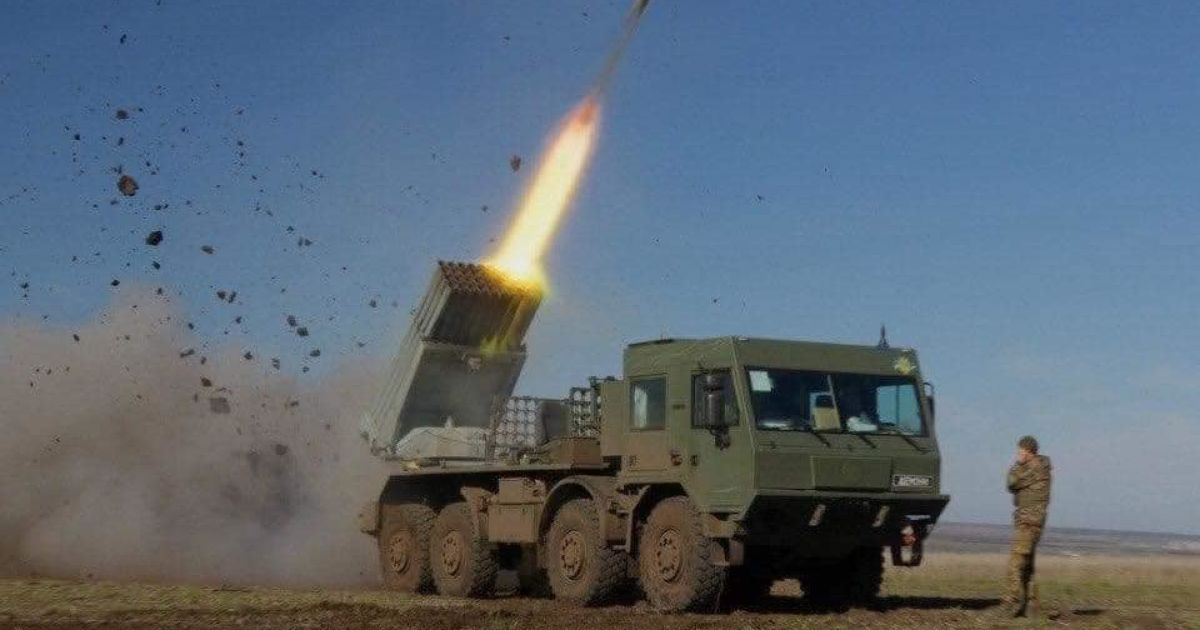Austrian military expert Tom Cooper, who regularly analyzes the situation at the front and is known for his ironic remarks about the Russians, explained what actually is the cause of the "shell hunger" in the Russian army.
He wrote about this in his report for March 15.
Spring off-road
The expert notes that the season of roadlessness has already begun at the front - there is so much mud and water on the roads that the crews of American M113 armored personnel carriers and Soviet MTLBs (popularly known as motoligs. - Ed.) often have to check the "amphibious" modes.
"And the designers at BAE Systems must be swooning over what their M777 howitzers have to endure when being towed around the local landscape. It's good to have something other than 20-30cm of dirt under the wheels of the vehicles" – noted Cooper.
The Russians have enough ammunition
Tom Cooper sarcastically commented on the reports of his colleagues that the Russians do not have enough artillery ammunition, and the Russian Armed Forces are allegedly forced to introduce restrictions on shells in many areas of the front.
"Judging by the reports of the Armed Forces of Ukraine, which have come under fire (and whose soldiers have been wounded or killed) as a result of shelling from Russian artillery, there are actually
no clear signs that Pudding
(as Cooper calls Putin. - Ed.)
lacks ammunition
," he noted.
According to the expert, it is much more likely that the Russians often
cannot bring
enough ammunition when needed.
An analogy with the Arab-Israeli war
"That is, the Russian Armed Forces, Wagner PMC and other "surrogates" experience a very similar, perhaps even the same problem as the Israeli Defense Forces during the Arab-Israeli war in October 1973," the expert suggested.
Cooper recalled that in Israel in 1973 there was more than enough ammunition - but in warehouses in the center of the country.
The problem was getting enough of it.
The reason was massive traffic jams, for example, on the roads of central Sinai.
"Imagine the sight: 30, 40, 50 km of road full of trucks, full of ammunition, neatly parked bumper to bumper. The problem: the roads were narrow single lanes surrounded by deep and soft sand. Any fully loaded truck that dared left the road, got stuck and could not move again without the help of specialists, and the specialists could not help because they were standing in the same traffic jam dozens of kilometers away," the expert gave an example.
What problem did the Russian army actually face?
According to Cooper, the problem faced by Putin's occupiers is much larger.
Not only because the Russian army is much larger than the Israel Defense Forces, or because the battlefield in eastern Ukraine in 2022-2023 is several times larger than the Sinai Peninsula or the Golan Heights.
"I already mentioned a month ago when I explained why Gerasimov is unable to conduct at least one "big" offensive and instead is forced to break up his "winter offensive" into three small operations.
It's
a matter of keeping enough ammunition
and supplies where it matters:
near the front line
," the expert emphasized.
According to him, the Russian railway system can transport a lot of ammunition, but storage
closer than 70 km from the front line is dangerous
, since currently Ukraine is armed with M142 HIMARS, M270 MLRS, GLMRS and similar weapons.
Therefore, it does not matter how much is brought by Russian railways, and it does not matter how well the Russians hide their ammunition depots.
At least one of them is blown up every day by "another Ukrainian HIMARS strike".
And even if the ammunition did not destroy the strikes of the Ukrainian artillery, they will still have to be delivered to the front line: this must be done
by trucks , of which there were
too few
in the Russian Armed Forces
at the beginning of the war.
Another factor is bad roads and mud.
"This problem has now reached such a scale that several units of BARS with mobilized people are only engaged in trying to help with logistics, day-to-day. Now add the total
corruption
and
incompetence
of the Putin system," concluded Tom Cooper.
It will be recalled that Yevhen Prigozhin, the owner of PVK "Wagner", was the first to complain about the "shell hunger".
The owner of the "Wagner" PMC accused Shoigu and Gerasimov that the Ministry of Defense of the Russian Federation did not supply ammunition to his fighters fighting near Bakhmut and caused a "shell famine".
However, as it turned out, shells are not enough not only for Prigozhin's wards, but also for the personnel of the Russian army.
Oleksandr Musienko, head of the Center for Military Legal Research, said that the Russians simply do not have time to produce the required number of shells.
That is why they are begging for weapons around the world.
According to the opinion of military expert Oleksandr Kovalenko, in 2-3 months it will not be a "starvation" but a "shell stroke".
Viktor Andrusiv, adviser to the head of the President's Office and the Minister of Internal Affairs, confirmed that the enemy's artillery is gradually being depleted.
Military expert Oleg Zhdanov also reported that, compared to the summer, the Russian army is gradually experiencing a "shell hunger".
Subscribe to our
Telegram
and
Viber
channels .
